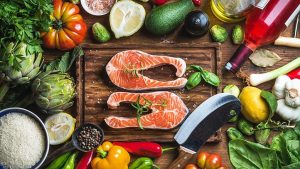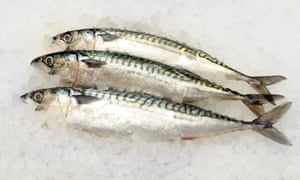A fish oil supplement may hold the key to treating one of the world's leading cause of blindness, a study suggests.
- Researchers developed a new kind of omega-3 fatty acid able to reach the retina
- The supplement increased DHA in mice subjects’ retinas, reducing vision harms
- Omega-3s, commonly found in fish oils, benefit cognition, vision and stiff joints
A fish oil supplement may hold the key to treating one of the world's leading cause of blindness, a study suggests.
Researchers have created a new form of omega-3 fatty acid that is capable of crossing into the eye’s retina to ward off vision loss related to Alzheimer’s, diabetes, and other diseases.
In a study on mice, the supplement was able to first be absorbed from the intestine into the bloodstream and then cross from the bloodstream into the retina. This prevented age related macular degeneration (AMD).
The mice that were fed the new type of supplement showed nearly 100 percent improvement after six months in the amount of crucial omega-3 known as DHA in their retinas.
The lab-made version of the omega-3 known as docosahexaenoic acid (DHA) was able to be absorbed from the intestine into the bloodstream and then cross from the bloodstream into the retina, unlike the type that makes up common fish oil supplements currently on the market.
The omega-3 the team developed could be packaged in a dietary supplement much like the ones that line pharmacy shelves, potentially helping more than 20 million Americans with vision problems liked to aging and diabetes
Scientists have been investigating for years whether dietary intake of omega-3 fatty acids can slow vision loss, primarily AMD, a common cause of severe vision loss in older people.
There are currently no treatments for AMD, and doctors will be relegated to provide elderly patients with glasses or other vision aids.
The substance, commonly found in fish and krill oil supplements typically comes in a form called triacylglycerol (TAG) DHA which cannot travel from the bloodstream into the retina.
Professor Sugasini Dhavamani in the Department of Medicine at the University of Illinois at Chicago and lead author of the report said: ‘Dietary LPC-DHA is enormously superior to TAG-DHA in enriching retinal DHA and could be potentially beneficial for various retinopathies in patients.’
‘This approach provides a novel therapeutic approach for the prevention or mitigation of retinal dysfunction associated with Alzheimer’s disease and diabetes.’
Studies of the specific omega 3 acid in humans have yet to begin. But the promising early results suggest that more than 23 million people – the total number of Americans with either retinopathy linked to diabetes or age-related macular degeneration – could benefit from a newly formulated dietary supplement.
People with Alzheimer’s disease, as well as those with diabetes, a group of rare eye diseases called retinitis pigmentosa, age-related macular degeneration, and peroxisomal disorders that affect the metabolism often have abnormally low levels of retinal DHA, resulting in visual impairments.
While omega-3s come in supplement form, they are also found naturally in many foods including salmon and other fish, leafy vegetables, wholewheat bread and walnuts.
The researchers tested their LPC-DHA supplement in mice bred to exhibit processes similar to those found in early-onset Alzheimer’s disease.
After six months, mice that were fed LPC-DHA daily showed a 96 percent improvement in retinal DHA content as well as preserved retinal structure and function.
Meanwhile, TAG-DHA supplements had no effect on retinal DHA levels or function.
In healthy eyes, DHA is concentrated in the retina, where it helps maintain photoreceptors, the cells that convert light into signals that are sent to the brain. Healthy levels of DHA in the retinas protect against damage from bright light exposure and oxidative stress.
Recent research has also shown that people with a higher blood DHA level have higher protection against Alzheimer’s disease and other dementias.
Professor Dhavamani said: ‘Increasing the retinal DHA at clinically feasible doses has not been possible until now because of the specificity of the blood–retinal barrier that is incompatible with the specificity of the intestinal barrier.
‘This study uses the novel approach of dietary LPC-DHA that overcomes both intestinal and blood–retinal barriers and improves retinal function.’
The dosage of their LPC-DHA was equivalent to about 250 to 500 milligrams of omega-3 fatty acids per day in humans, roughly the same range recommended by the National Institutes of Health and the American Heart Association.





